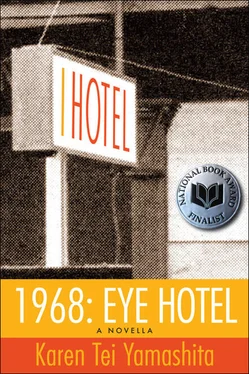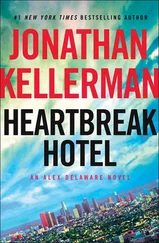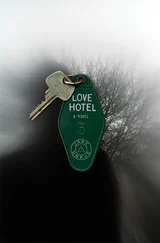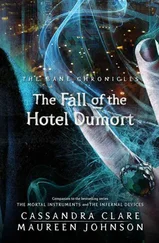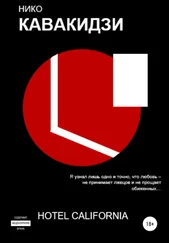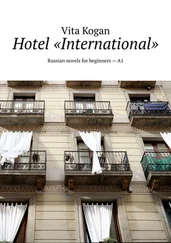Chen stood and walked to the railing. He held his book before him. The young man saw the book in his hands before he saw Chen, but he knew it was he. Their shoulders touched. The threadbare shirt grazed the short-sleeved cotton bound to Chen’s muscular biceps. “For your birthday,” Chen said, proffering the book to the sea. “It’s today, isn’t it?”
“How did you remember? I’m twenty-one.”
“We’ll celebrate.”
Every culture has its day of passage. We’d adopted this one because we believed in the law. We of all people knew the promise of law could be broken, but we doggedly struggled behind that faith.
The young man took the book from Chen and turned from the sea. He leaned his back into the railing with the open book. The pages flapped up in a salty gust as the ferry left the dock. We looked up into the sky with Chen as the ferry’s horn announced its departure. But the young man was troubled with the wild pages of his new book.
“You’ve written another book.”
“I translated the calligraphy and wrote the historic text. It’s the work of an artist I’ve long admired. He died a few years ago in his nineties.”
“When did you do this?”
“This year.”
“You’ve been busy.”
“So have you.”
“I moved into the I-Hotel.”
“Edmund told me.”
“It’s over. She left for Cuba.”
Chen nodded. “Venceremos?”
“She was stripping to save the money.”
“Viva Che.”
The young man smiled. “The things we do for the revolution.”
“And you? Why didn’t you go too?”
“I guess I couldn’t strip for the revolution.”
“Ah, no?”
“I have bourgeois tendencies.”
“Stripping is not?”
“The experiment failed.”
We understood Chen’s quizzical look, but he remained silent.
“I was the experiment, I think. She gave up. No, she got tired. I got tired.”
Chen said nothing.
“It was all about pretending. I couldn’t pretend all the time.”
“Drugs help.”
The young man turned to Chen with some astonishment, then embarrassment. He turned to the sea and felt his tears well uncontrollably.
Neither spoke for a long time. We felt the ferry press across the bay, chased by gulls.
Chen spoke first. He changed the direction of the conversation. “The work of the revolution is a life devoted to the people, that is to say, the public. It’s a public life. A man’s private life, one’s deep interior, must at times be forgotten or sacrificed.”
The young man shifted. We shifted too, wanting to avoid the weight of these words.
“Here.” Chen retrieved the book offered as a gift, searched the pages. “This is one of my favorite paintings. Twin peaches in a small basket. Peaches represent long life, but as you know they are delicate, bruise easily. If the tree lives long, the fruit is ephemeral. Picked ripe from a tree, there is nothing sweeter or more succulent. Here twin peaches sit together, sweetly and exaggeratedly red in color for a lifetime.” Chen reached up to touch the soft fuzz of the young man’s felt fedora and tugged it down in jest.
If we felt confused, it was also the young man’s turn to look with questioning, as well as sheepish, eyes.
Chen sighed. “Revolution is old, but older yet is the sentiment of this painting, of love and of poetry.”
We studied the painting. We admired the swift brushstrokes, rapidly accomplished in a single sitting. How could such a thing seem so simple? It was a demonstration of a life of training revealed in a moment. It was unlike the Western oil painter’s painstaking labor of color and light and perspective revealed over many years.
Chen continued, “I don’t have an answer except for the experiment, as you say, of my own life. If it’s your own experiment, how can it fail?”
The young man looked up.
“A long life might be many lives, many ephemeral lives within one life.”
The ferry chugged into its slip, and we ambled onto Angel Island. Angel Island felt like it might be our island; so much of our history was here. But it was now a state park, and the authorities in control were friendly park rangers who directed hikers and picnickers. They had mostly forgotten the old history of the island.
The young man followed Chen, who walked quickly toward an old two-story building. A park ranger came forward to greet them. “Professor Chen? I’m Alexander Weiss.”
We followed Ranger Weiss to the dilapidated building. “You’ll excuse the mess. This building was a barrack. It’s been used as storage. As you know, it’s slated for demolition. I thought we should see what was in it before we tore it down. You never know. I didn’t expect to find any treasure.” He turned the key on the lock and shoved the door open. The light through it illuminated a cloud of dust, and we stepped inside.
“Watch your step. Upstairs. Over here.” Weiss held a flashlight to a section of the wall.
Chen scrutinized the wall. Looking closely we saw the wood was carved away, inscribed in Chinese characters. We saw Chen’s fingers delicately touch the wall. We thought he closed his eyes as if a blind man reading vivid Braille. He translated slowly:
Leaving behind my writing brush and removing my sword, I came to America.
Who was to know two streams of tears would flow upon arriving here?
If there comes a day when I will have attained my ambition and become successful ,
I will certainly behead the barbarians and spare not a single blade of grass.
“A poem,” said the young man.
“It’s haunting,” said Ranger Weiss. “I’ve searched the other walls. There are many others. Like cave paintings, I think. A record of each man’s time here.”
“Plans for demolition will stop?” Chen asked.
“Yes, hopefully we can stop it. I’ll have this building cleared out so you can see safely.”
“When?”
“In a week or two? Can you return?”
“Yes, yes!” Chen said excitedly. He stepped back to the carved wall and read the bitter, defiant poem again, this time in Chinese.
We heard the long quiet in those barracks as his recitation came to a close, standing with three men in a jubilant circle in a dusty path of light.
We left Angel Island with Chen and his young companion. They took the ferry on to the far side of the bay, to Tiburon, their conversation filled with plans and possibility.
“We’ll get Edmund involved. He can help with the translations.”
“But a poet’s sensibility about language is necessary, to transmit the feeling of the poem into English. You should help with this.”
We saw Chen’s racy white Shelby Mustang GTO was parked conveniently at the ferry port.
“How about the Siata? How’s it running?” the young man asked.
“I raced the Monterey Historic last week,” said Chen, gunning the engine to emphasize his boast.
“Are you angry with me for disappearing?”
We tooled with the racecar up the hills to the familiar layered pavilion that was Chen’s house overlooking the bay. “I’ve been too busy missing you to be angry.”
Chen set a table on the terrace. He placed stemmed glasses, silverware, and candles in a precise pattern on the cloth. We followed him back and forth from the kitchen. “One of my specialties,” he said, fussing over a complicated sauce. “I learned it from a French chef.”
“Julia Child?”
“How did you know?”
We didn’t argue, since Chen was the sort of person who might really know Julia.
“Julia’s instructions are to grill duck breast rare.”
We stared at a photograph of a woman decked out in racing gear—gloves, goggles, and helmet—and standing next to a car. “Porsche 356 Monza. I’ll never forgive Nica. She gave it to a girlfriend who one day just drove it away.”
Читать дальше
